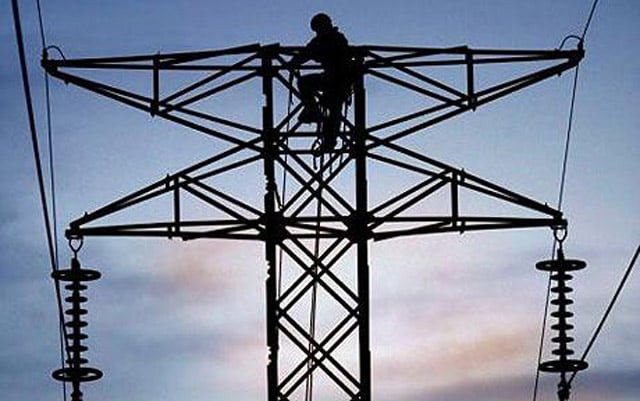Donors seek 200% hike in power tariffs
Friends of Democratic Pakistan proposes three options that could help steer Islamabad out of its energy crisis.

A report prepared by the energy sector task force of the FoDP – a copy of which is available with The Express Tribune – ruled out the possibility of energy sector revival without “reflective tariffs and elimination of subsidies” from one to three years, depending upon which option the government adopts.
The report titled “integrated energy sector recovery report and plan” states that load shedding cannot be eliminated before three years, putting a question mark on following the expensive rental power plant policy on flimsy claims. Already, the government has signalled that it will implement the task force’s recommendations. However, it has not yet indicated its preferred option.
The first option, according to the report, is to raise tariffs for full cost-recovery that amounts to more than 200 per cent for some customers served by inefficient power distribution companies in Hyderabad, Peshawar and Quetta. If the government acts upon this advice, tariffs for residential consumers in Lahore and Faisalabad would increase by 110 per cent. In the same manner, there would be 100 per cent upward revision in the Gujranwala region, 80 per cent in Islamabad and 105 per cent for residential consumers in the Multan region.
In case of inefficient power distribution companies, the residential customers of Khyber-Pakhtunkhwa, Balochistan and Sindh except Karachi would be subject to 150 per cent increase in electricity rates.
Nonetheless, the report also notes with concern that “this strategy to eliminate tariff differential subsidies” is likely to lead to “substantial social unrest against the government”. Because no compensatory mechanisms have been worked out, “it would be harmful for the lower income groups and, thus, socially unacceptable”.
Residential tariffs are the lowest in Pakistan when compared to Asian oil importing countries. The industrial tariff in Pakistan is higher than Indonesia, Korea, Malaysia and China but lower than in Hong Kong, Vietnam, Thailand, Japan, Singapore and the Philippines.
The second option stipulates full cost recovery from the consumers of efficient companies in Faisalabad, Lahore, Islamabad, Gujrawanala and Multan within one year. This comes to a 80 to 110 per cent increase in tariffs.
To recover full cost of electricity generation from the consumers of inefficient companies, Quetta, Peshawar and Hyderabad, the FoDP report suggests a three-year cost recovery mechanism through tariff increase and reducing line losses. This would result in a Rs4.5 to Rs5 per unit increase in electricity tariffs for the consumers of these companies.
The donors recommend that the responsibility of phasing out subsidies should be given to the National Electric Power Regulatory Authority (Nepra), the power sector watchdog, by taking it from the water and power ministry. This would be done by amending the Nepra Act.
The third option is to gradually increase tariffs of all power distribution companies over a fixed period. “This would be more socially acceptable but would continue to strain the government’s budget”. The World Bank and the Asian Development Bank have already opposed this strategy due to excessive budgetary cost.
The report recommends reducing the companies’ line losses to an average 12.4 per cent which, according to the study, was highly unlikely until the government privatises all the power distribution companies. Till December 2009 Faisalabad company’s line losses stood at 7.8 per cent, the most efficient, Gujranwala, 8.8 per cent, Hyderabad 34.1 per cent, Islamabad 7.4 per cent, Lahore 13.6 per cent, Multan 18.4 per cent, Peshawar 35 per cent, Quetta 21.3 per cent and Karachi 38.5 per cent (till June 2009), the most inefficient.
The report says that tariff differential subsidies are not only very high but are also not targeted to the poor. “The rural customers, many of whom are lifeline consumers, experience load shedding for up to 20 hours, but the allocation of subsidy to the lifeline consumer is just 0.42 per cent of the total subsidies”.
Consumers of up to 100 units take away 9.5 per cent of the total subsidies, in the next slab of 101-300 unit consumers take the largest chunk of 45.2 per cent, for the slab of 301-700 units the subsidy is 9.5 per cent and for the highest slab the figure is 5.6 per cent.
Published in The Express Tribune, October 22nd, 2010.

1724319076-0/Untitled-design-(5)1724319076-0-208x130.webp)

















COMMENTS
Comments are moderated and generally will be posted if they are on-topic and not abusive.
For more information, please see our Comments FAQ